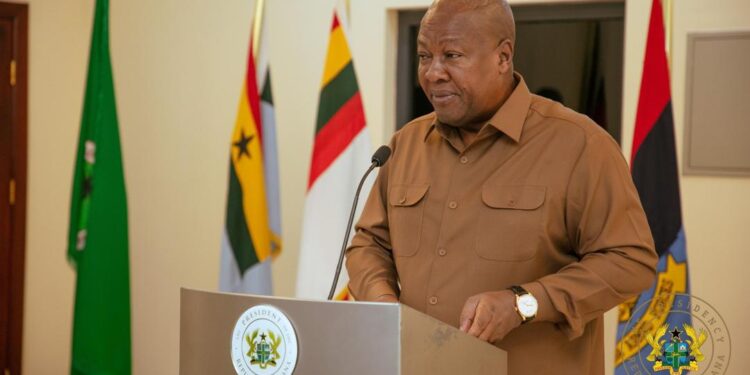A financial market analyst, Gifty Annor Asantewah, has berated the government of Ghana for the proposed Electronic Transaction Levy or E-levy, stating that it is counterproductive and disingenuous to the average Ghanaian.
According to the analyst, the ‘insensitive‘ E-levy, will have negative consequences on the telecommunication sector stocks on the Ghana Stock Exchange (GSE). She explained that, because majority of the Ghanaian population belongs to the lower class, which heavily uses the mobile money service, more taxes will be a disincentive to many and will consequently erode the gains made from the digitization campaign.
“With about 90% of the Ghana’s population between middle class and lower class, it is disingenuous to levy the electronic transactions by a whooping 1.75%. It will discourage many Ghanaians, and they might reverse to the use of physical cash more. Clearly, these charges are counterproductive and must be discouraged. 1.75 percent extra charge on electronic transactions will abort the digitization campaign by the government.”
Annor Asantewah
Annor Asantewah alluded that the e-levy will have a rippling effect on the telecommunication industry and subsequently affect the stock market, especially the Telco giant, MTN Ghana – the only telecommunication stock listed on the local bourse.
“Investors are reading and monitoring the market. So, it will affect the stock market. If you look at the trends, you could see that MTN Ghana stocks started suffering from the onset of the announcement. Prior to the budget, MTN stocks was doing well. But now, it has plummeted in the last three sessions after the announcement. Even though e-levy is yet to be implemented, the stock market has responded. This initial market shock may last for a while before picking up.”
Annor Asantewah
How MTN Ghana Stock Responded to E-levy
The announcement by the Finance Minister has triggered volatility in the market. A sudden wave of profit-taking gripped the MTN Ghana, as it’s stock prices lost ground rapidly. On Wednesday, 17th November, it lost 0.75 percent of its stock value. The following day, it managed to hold itself and traded flat. In the last weekday of last week, November 19, the MTN Ghana entered the red territory again.
MTNGH closed its trading day (Friday, November 19, 2021) at GHS1.25 per share on the Ghana Stock Exchange (GSE), recording a 5.3 percent drop from its previous closing price of GHS1.32.
That notwithstanding, prior to the E-levy announcement, MTN Ghana recorded GHS 0.06 on its share price, gaining 1.54% and 0.76% in two consecutive sessions prior to the reading of the budget. This further highlighted how the new E-levy started hurting the telecommunication giant.
Businesses Must Braze up for More Difficulties
Annor Asantewah posited that Ghanaians must expect more difficulties as a result of the new electronic tax. She indicated that Ghanaians are already suffering due to the COVID-19 pandemic, which caused many businesses to collapse. Therefore, the e-levy will only exacerbate their situation.
“Already, the average daily income has dropped to 1.26 Ghana Cedis per hour as a result of the pandemic. Due to COVID-19, a lot of people have already lost their jobs. Businesses continue to collapse due to devastating effects of the pandemic. Most of these small businesses are run by the lower class. Upon all these effects, fuel and gas prices have been increasing astronomically. It is a difficult time really. Honestly Ghanaians need to be prepared for difficult times ahead.”
Annor Asantewah
Resistance from Minority
The Minority Speaker in Parliament, Hon. Haruna Iddrisu, registered his displeasure about the 2022 budget, stating “our concern is whether the e-levy itself is not and will not be a disincentive to the growth of digital economy in our country .”
Mr Haruna Iddrisu also emphasized that he is convinced that “the e-levy may as well even be a disincentive to investment and a disincentive to private sector development in our country. We in the minority may not and will not support government with the introduction of that particular e-levy . We are unable to build national consensus on that particular matter.”
Mr Ofori-Atta, Finance Minister, observed on Wednesday, November 17, as he presented the 2022 budget statement in Parliament seeks to introduce some measures including the now popularly declared e-levy to widen the tax net.
“It is becoming clear there exists enormous potential to increase tax revenues by bringing into the tax bracket, transactions that could be best defined as being undertaken in the ‘informal economy.
“After considerable deliberations, government has decided to place a levy on all electronic transactions to widen the tax net and rope in the informal sector. This shall be known as the ‘Electronic Transaction Levy or E-Levy’.”
Ken Ofori-Atta

READ ALSO: Compensation Of Employees, Interest Payment To Consume 73.6% Of Projected Domestic Revenues In 2022




















